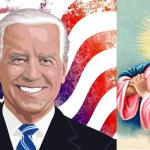Language seems to poison our ability to be rational. Whenever I write on what seem to me to be the intuitive foundations of socialism (community), I am quickly commended by those who already like the word and interrogated by those who do not.
Here is a word that most people—both for it and against it—do not like: capitalism.
Now this is too convenient because, after all, capitalists didn’t decide to call themselves that in the first place. If there ever was something that conservatives (whatever that word means) could do to help their cause, it would be to coin a word of their own choosing to express what they want to preserve in what gets called ‘capitalism.’ But that is entirely beside the point.
I think that we make too much of the impossibility of there being any saving grace in what is meant by, as opposed to what we want to say “they” (the evil people) mean by, capitalism. For the most part we (by “we” I mean those of us on the left, yes I will own up to being something of a leftist, whatever that means) like to say that all capitalism, and its governing libertarian sentiment, desires is for there to be no limit at how much one can take for one’s self. It is a creed of the indulgent and the rich.
Greed, selfishness, isolationism, sterile individualism and other nasty things, are what we enjoy making capitalism out to be. And this is for good reason, after all, in practice it frequently looks like all those things and more. But, if we begin to cash-out our social, economic, and political ideas by their manifestation in the world, then, we’re all screwed, to put it lightly.
What do capitalists (for lack of a better word) really seem to mean? Why can they believe in it with such hope? I think that true, benevolent belief need not be cast aside as indoctrination, ignorance, or stupidity. What rouses the conscience of the capitalist to want to see the world in this way?
If we can cut-out the name calling, I think we can find a powerful meaning within capitalist sentiment. Namely, the much-abused, taboo, and rejected idea of the individual, the person-singular. I think that if we take notions of private property and negative freedom (“freedom from”) inherent in capitalist sentiment, and ponder what they mean, we will find that we all value such things privately. We want to think with the tragic freedom we possess by our very nature. We want to own our self in a unique and incommunicable way, because we do. We cannot escape individualism, we are all capitalists in this way.
But we cannot stop at that. We also know that identity and personhood are not static things that stand still or exist in their own arrogance. We are constituted in relations. We are created. The truth of this sense of ourselves in solitude is not the whole story. But it is a key aspect of the story.
Here is my defense: Capitalism, as it is believed in benevolently, reminds us of our radical existence as images of God with a potency to do as we wish within the vast sea of possibility. What we need next is the ability to control ourselves with the prudence, grace, and love of our Creator in this stormy sea of freedom. But we should never be too quick to accept external-control over our bodies, minds, and hearts. We need to be free. And perfect freedom is not the raw, brute force of libertarianism, to be sure. At the same time, it also is that imposing force.
Whatever attachments we have to this or that vision of the world, cast as this or that toy word, we should never throw language aside because it somehow makes us feel like we are losing ground. The odd thing about all this is that one could say many of the same things about ‘socialism.’ The point isn’t to try and make our language sacred to the point of idolatry, it is to make it sane, reasonable, and in love.
















